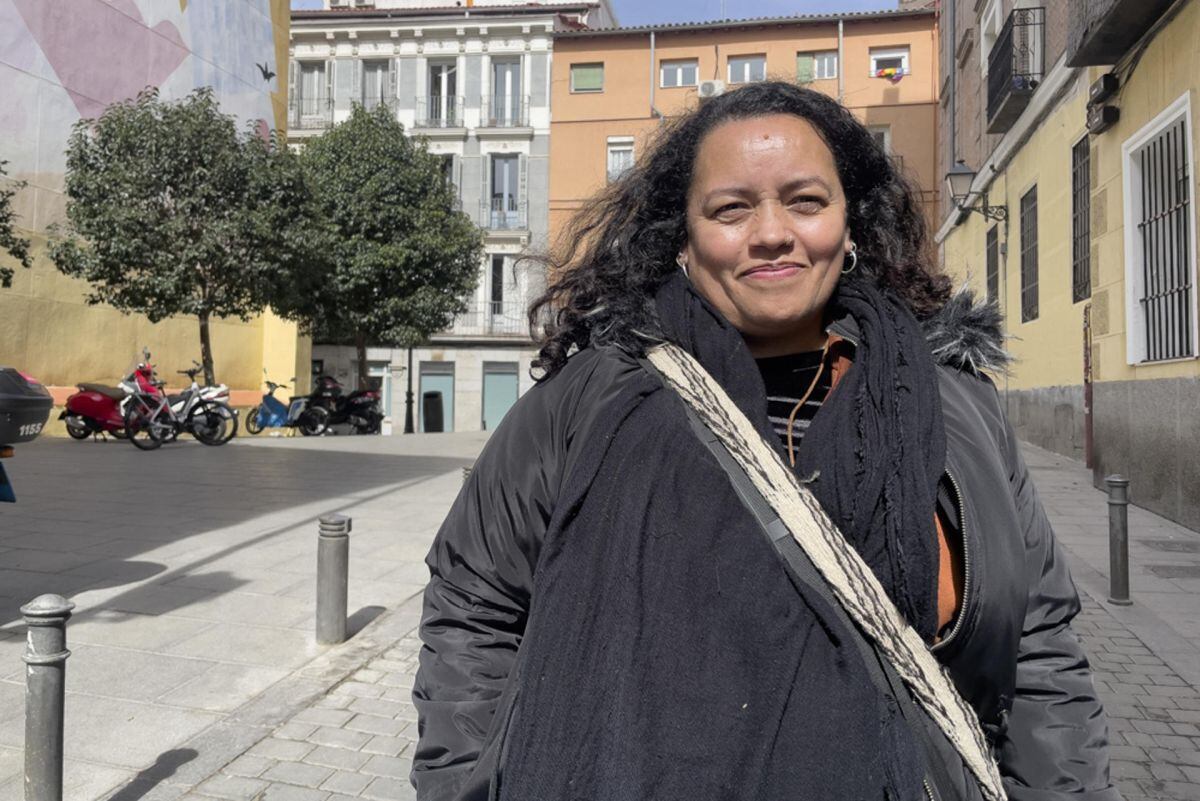
The salvadoran Carolina Elías would not have migrated to Spain if at the time of doing so he had had children because he knows the history of his “companions”, the Latina migrant women who face precariousness, long work hours and racism and who demand that Spanish feminism not forget about them.
“When you come you realize that the only job you can aspire to is home and care,” explains to EFE this Salvadoran lawyer with fourteen years in Spain, who was never able to practice her profession due to lack of recognition of her studies, but she did not stay “crossed arms”
On the International Day of Working Women, Elías, director of the Sedoac (Active Domestic Service) organization that fights for the rights of domestic and care workers, insists that “struggle” to achieve “progress” for women and specifically for these workers.
“Being a woman puts you in a situation of vulnerability, you have fewer opportunities than men but add to that being a foreigner and of race, you have more obstacles than other people”affects.
WOMEN’S NETWORKS
Elías tells that when he decided to stay in Spain, also moved by the “unsafety” in his country, he did not want to abandon his most demanding part and continued “struggling to change the situation” from other women like her.
“The wonderful thing is that I found more women who dreamed of the same thing and that’s how I came to Sedoac, to fight with them for fair and dignified conditions in this sector”comment.
A network that became a family, made up of other Latin American women “But also by Spaniards who have a different personality and empathy towards people from the rest of the world.”
And it is that, according to account, Latin American women in Spain live challenges “very large and complex” when they have to deal with their Spanish employers.
In this sense, she regrets that there is an image that Latina women “they are hot” and they come to Spain “to marry some Spaniard who will solve their lives”.
“That is completely false, we are simply women who come to seek a better future for our families and for ourselves” and that picture “It makes you vulnerable and exposes you to rape, touching and impoverishment.”
The Colombian Erika Sarmiento, also with fourteen years in Spain, expresses herself along the same lines, who gives an example of cases of labor exploitation in which Latin American women receive wages below the law and precarious working conditions.
“There was a girl who worked as an intern and they gave her 200 euros, because the man told her that he really paid her 800 but that he deducted food and room”, he recalls.
Sarmiento is part of the Latin American and Caribbean Women’s Network and criticizes the working conditions of many of her colleagues, to whom they have come to offer salaries “three euros an hour” At the end “work an hour and a half.
INSIDE THE FEMINIST MOVEMENT BEING A MIGRANT
The Colombian underlines the difficulty of finding a place in the Spanish feminist movement as a Latin American migrant and recalls that although “upon arriving in Spain, you become aware of what it is to be a feminist”, come from countries “with a long tradition” andin this fight
As he says, Spanish feminism “He doesn’t care much about migrants” and regrets that this group remains in the “theory” of the movement.
“There is talk that migration should be an axis (of the movement) but they are words, because when feminist women want to go to march, who takes care of their children? a migrant woman“, exemplified.
In this sense, she points to the Spanish feminist academic world as another of the problematic focuses on this issue, a place that she labels as “white and European” where “women have a much harder time” see the migrants “And when one talks about this, they feel attacked.”
“It is as if all the work they have done is not recognized, we did not come here and became feminists, we have work behind our ancestors and ancestors that has never been recognized”he emphasizes.
Source: EFE
Source: Gestion
Ricardo is a renowned author and journalist, known for his exceptional writing on top-news stories. He currently works as a writer at the 247 News Agency, where he is known for his ability to deliver breaking news and insightful analysis on the most pressing issues of the day.












